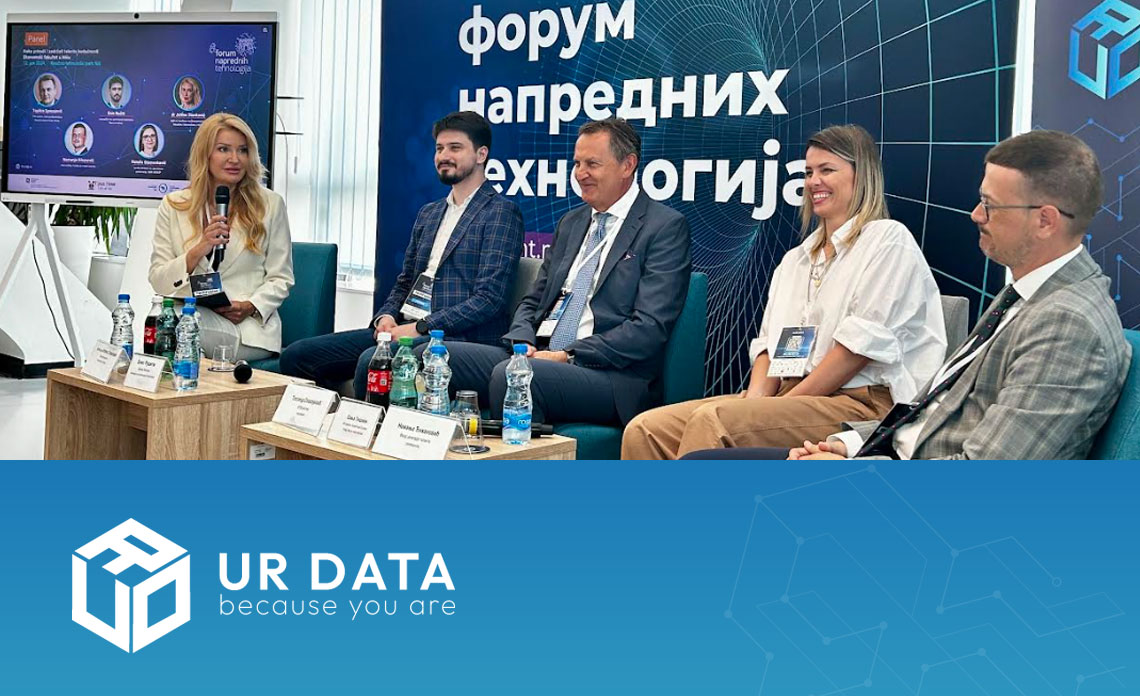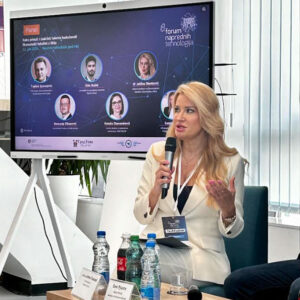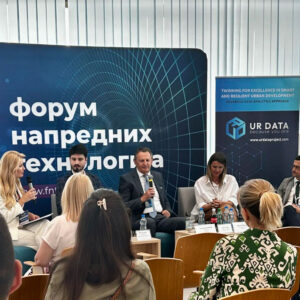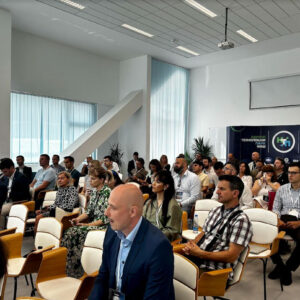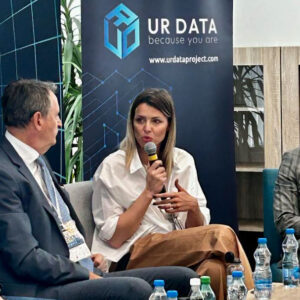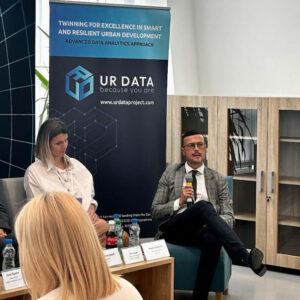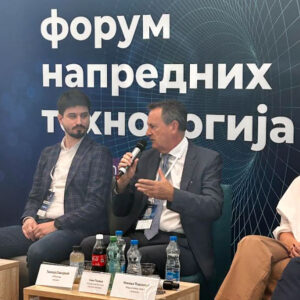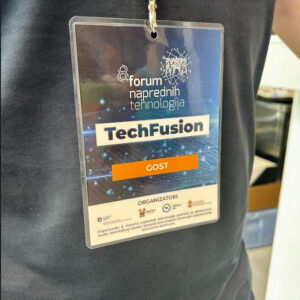The UR-DATA project participated in the VIII Forum of Advanced Technologies, held on June 12, 2024, at the Science and Technology Park Niš.
The project’s coordinator, prof. Jelena Stanković, led a panel discussion titled “How to Attract and Retain Future Talents?”
This panel brought together prominent industry leaders and experts to explore effective strategies for talent management in the evolving technological landscape.
Panel Participants
- Toplica Spasojević: President of ITM, Chairman of the Board of Superbrands Serbia, Member of the Presidency of the Association of Serbian Economists, Vice President of the Advisory Board of Naled, Member of the Business Club “Privrednik”, Member of the Association of Corporate Directors of Serbia, Board Member of Generali Insurance.
- Sanja Tišma: Director of Human Resources and Organisational Culture for Southeast Europe at Philip Morris International.
- Nemanja Đikanović: Head of the Fund for Young Talents at the Ministry of Science, Innovation, and Technological Development.
- Enis Rušiti: Talent Manager at Banca Intesa AD Belgrade.
- Moderator: Prof. Dr. Jelena J. Stanković, Faculty of Economics, University of Niš.
Discussion was centred around two important topics, starting with the problem of economic transformation and talent retention.
The discussion emphasised the necessity for Serbia’s economic transformation to extend beyond the development of high-tech sectors, highlighting the importance of applying these technologies across all economic sectors to escape the “middle income trap.”
The panellists debated the current economic challenges, such as the lack of added value in production and services and the regional disparities in economic development, which affect talent retention outside the capital city.
Key questions included: solutions for preserving talent and preventing brain drain, strategies for attracting and retaining talent, (including salary, work flexibility, team or individual work creation, working conditions, career advancement opportunities, and professional development); the role of government measures in creating new jobs and effective interventions; and decentralisation measures to reduce depopulation and retain talent outside Belgrade.
Within the second topic, Bridging the skills gap, it was emphasised that in the modern business environment, companies struggle to find qualified workers with the necessary skills for specific jobs.
The panel explored ways to bridge this skills gap through educational program improvements and collaboration between companies and educational institutions. The discussion focused on defining talent, the characteristics of an ideal worker amidst a skills mismatch, and strategies for continuous employee development.
Key questions included: essential skills and knowledge for industry success currently lacking in the educational system; defining talent and important characteristics for hiring new employees, especially amidst a skills mismatch; strategies and programs for continuous skills development within companies; and willingness to collaborate with higher education to address the skills mismatch and possible contributions to this collaboration.
The UR-DATA project’s active role in this significant event underscores its commitment to fostering innovation and addressing the challenges of talent management in the technological sector.

